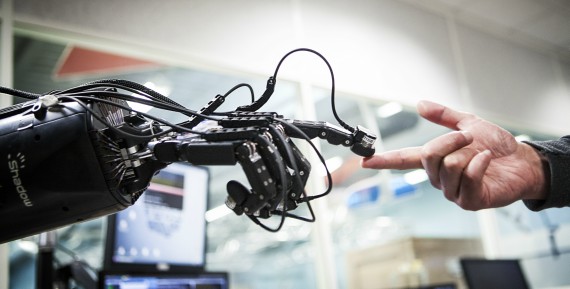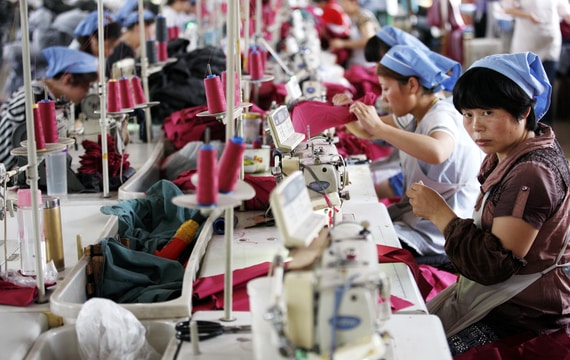The fast development of science and technology has brought the world to a scenario that would have been hard to imagine just 10 years ago. The speed with which these changes are taking place and the revolution that they entail in our daily life brings cofusion and even skepticism to our society.
We often ask ourselves questions about the consequences we will have to face in the immediate future and in the book The Age of Perplexity, 23 recognized authors answer most of these questions related to politics, economy, religion, society, media or the shift towards a new world order. We review for you what 20 major challenges we face in this transition:
1- Will the technological revolution boost welfare or increase inequality?
In a world where uncertainty, insecurity and fear are prevalent, we need to harness technological advances for the social, economic and political benefit of society. Francisco González, Group Executive Chairman of BBVA, argues for the promotion of R&D, technological training and entrepreneurship to ensure optimal adaptation to the digital world where the transformation of the financial system will also play a key role. Read full article
2- How will the internet be used after we conquer Big Data?
Incorporating data into our daily lives will transform the current technological context and how we communicate on the web. Researcher Jannis Kallinikos analyzes how we will be harnessing data technology in the near future. Read the full article

3- Can technology take authority away from humans?
The irruption of technology into our lives is forcing us to rethink how society is organized, the concept of authority and how it is distributed. Professor Robin Mansell describes a future where humans shape technology for their own benefit rather than the other way around. Read the full article
4- Is democracy at risk due to the height of populism?
Several populist movements have emerged and taken over power in governments and organizations across the world. Using concepts such as “the real people” and demonizing “the others,” the populist messages have managed to enter the collective imaginary. Professor of Political Science Jan-Werner Müller reflects on the threat posed by this type of thinking and its possible impact on society. Read the full article
5- Why are people angry with democracy?
Against a background of frustration, mostly generated by the economic crisis, people in the most advanced democracies have shown their rejection and distrust of politics. But this is not a new phenomenon, as explained by Professor José Luis Pardo. A worsening sense of well-being was already at the root of other waves of dissatisfaction such as “May 1968.” Read the full article
6- To what extent have new media changed politics?
Communication is essential in the world of politics and the “new media” have dramatically altered how government institutions work, and how the general public is involved in politics. Expert Diana Owen talks about the importance of these media in political processes through phenomena such as fake news, post-truth, “citizen reporters” or “echo chambers.” Read the full article

7- How does political activism work in digital contexts?
The new ways of protesting against the elites, such as mass cyberattacks, account hacking or computer propaganda have pushed down the cost and broadened the reach of activists’ actions. As explained by well-known author Evgeny Morozov, these movements go far beyond anti-system organizations. Read the full article
8- Can the general public reverse the neoliberal system?
Throughout history, several anti-system movements emerged as a response to the status quo established by neoliberalism and capitalism. As put forward by researcher Simon Springer, anti-system values mean taking action yourself to free us from the State and the Capital and redirect resource distribution in our favor. Read the full article
9- Can feminism make headway in international politics?
Even though it has a long history, the feminist movement is now being heard the loudest, with its demands starting to translate into actions. Professor Marysia Zalewski reflects on how to apply the feminist principles to international relations and, as such, end the hegemony of machismo in culture and society. Read the full article
10- A world without war or at cyberwar?
Even though the classic form of war between states is now obsolete, the world is still not free of conflict between guerrillas, armed groups or civilian groups. Most military efforts are currently focused on eliminating the Islamic State. However, author John Andrews argues that most world conflicts are fought in cyberspace: malware, ransomware and interference in elections are the weapons of cyberwar. Read the full article

11- What is the place of the Arab-Muslim world in a globalized and technological system?
High instability, widespread armed conflicts and the constant threat of terrorism change how the irruption of technology is viewed in this area of the globe. In a geopolitical retrospective of the area, professor Nayef Al-Rodhan theorizes about the influence that the arrival of technology may have in the development of nations in the Middle East. Read the full article
12- Is China a real threat to U.S. hegemony?
The stability and prosperity of the post-Cold War period have been replaced with international tensions caused, to a large extent, by the 2008 financial crisis. China presents itself as the epicenter of Asia and, according to researcher Ian Storey, will fight for world dominance with the United States. Read the full article
13- What will the future bring to Latin America?
Poverty, inequality and rising violence have been years-long obstacles to the prosperous development of Latin-American countries. Authors Miguel Ángel Centeno and Andrés Lajous analyze the past, present and future of the region in political, commercial and sociological terms. Read the full article
14- What will the international economic order be like as a result of globalization?
The international political economy is living a time of transition toward a post-industrial system and faces structural changes relating to leadership. This will result in a transformation of the trade system as we know it, as explained by economist Douglas Nelson. Read the full article

15- Is technology really an ally of the labor market?
In theory, technology was destined to correct human errors within the productive system and, as a consequence, boost productivity. However, we have been human productivity slowing down in the last few years. Well-known researcher Zia Qureshi reflects on the future of this trend and how governments must act to adapt their policies to the digital era. Read the full article
16- Will Artificial Intelligence improve or worsen employment and work conditions?
Technology has led to an improvement of our living conditions and the production system. However, it has also led to major inequality. Expert Adam Saunders theorizes about the relationship between technology and work and analyzes how automation, Artificial Intelligence and qualification will affect training and employment in the future. Read the full article
17- Have austerity policies destroyed the welfare state?
Politologist Andrew Gamble postulates that the welfare state is essential for social stability and legitimacy. After the 2008 recession, the austerity policies enforced by Western governments undermined its possibilities. However, it is still the key to creating the market conditions needed to sustain capitalism as an economic and political system. Read the full article
18- Is a sustainable economy possible for the majority of the population in a capitalist society?
Capitalism is the economic system in most countries in the world and, albeit it has historically survived, it undoubtedly causes harm and inequality. For this reason, author Richard White explores the alternatives to this economic system for creating a fairer and sustainable society. Read the full article

19- What is the future of employment like?
At a time when there is concern for the irruption of technology and automation in the labor market and for the proliferation of temporary, poorly-paid and precarious employment, authors Helen Hester and Nick Srnicek analyze the trends and challenges of the employment culture in developed countries, and the importance of “caring” for others. Read the full article
20- Is there a real timeframe for the end of poverty?
Even though it is one of the main objectives of the UN Sustainable Development Goals, extreme poverty is far from eradicated. Researchers Adriana Conconi and Mariana Viollaz draft a theoretical approach to estimating and measuring development, poverty and inequality. Read the full article
Pablo García-Rubio Márquez
Comments on this publication